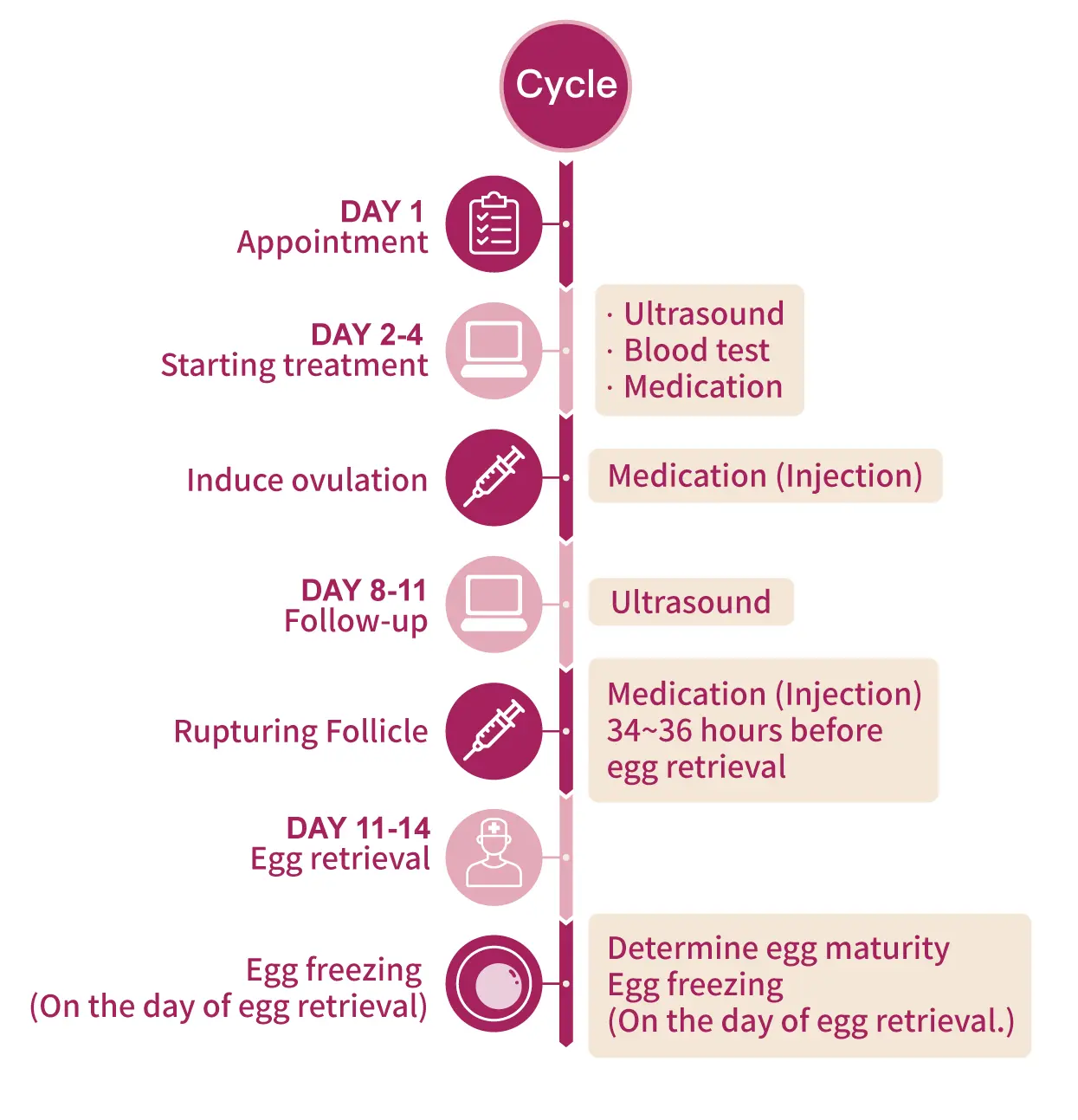
Reproductive Services
- Home
- Reproductive Services
- Egg Freezing
- Introduction
Introduction
Share
Experts recommend aiming for pregnancy between the ages of 25 to 35 since this age range is associated with the best outcomes for the mother and baby. Biologically, a woman’s fertility begins to gradually decline at around 35 years old and starts to rapidly decline after 38 years old. However, due to advanced technology, egg freezing now implements a slow freeze methodology and has varying degrees of success. This method is commonly used to help women conceive in the future.
Notice:
Individuals who want to receive assisted reproductive treatments would need to first undergo a VDRL and HIV blood test. A valid marriage certificate is also necessary for those who want to receive test-tube baby treatments.
When should a woman consider freezing her eggs?
▪ Before undergoing cancer treatment
▪ To preserve the ability to conceive in the future
▪ Premature ovarian failure or senile ovary, AMH<2 ng/dl
▪ External factor (no semen from husband can be used on the day of receiving test tube treatment)
▪ Egg donor


